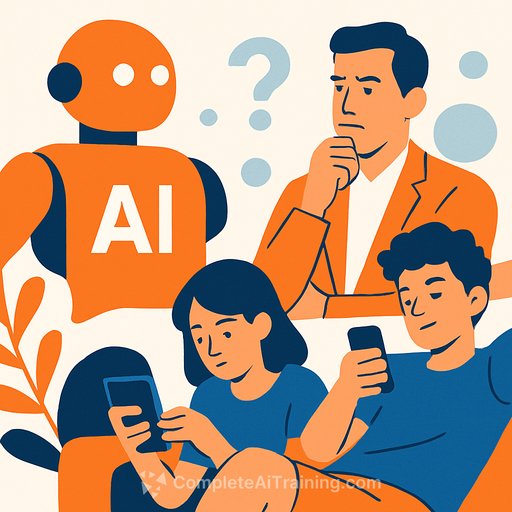Tom Goodwin on AI’s Role in Marketing and Its Societal Risks
Tom Goodwin, a top marketing consultant and futurist, shared his insights on AI’s potential and pitfalls at the ADMA Global Forum in Sydney. He sees AI as a tool that can reshape marketing and highlight the value of strong brands, but he also voices serious concerns about how AI is managed and its wider impact on society—especially on younger generations.
AI’s Potential to Improve Marketing Quality
Goodwin argues that marketing today often feels uninspired and average. Instead of simply adapting old formats with new technology, he insists the industry should rethink how to engage people emotionally and provide timely, helpful offers. AI should be used to improve marketing quality, not just to cut costs or speed up processes. According to Goodwin, marketing is still the only industry where technology has yet to deliver meaningful improvements.
He points out that brands remain essential. Despite some claims that brands are dying or that bots will replace human buying decisions, brands help us make sense of an overwhelming world full of choices. With more data and better devices than ever, marketers have a unique chance to create meaningful connections.
The Problem with Attribution Obsession
Goodwin criticizes the current “era of attribution” in advertising, where immediate measurement and short-term results dominate decision-making. He warns that this obsession with tracking every detail and optimizing for instant conversions stifles innovation and creativity. Truly new ideas can’t be measured by past examples or instant metrics.
He calls for a shift in business culture that values instinct, trust, and long-term growth over immediate, measurable returns. The divide between brand-building and performance marketing, he says, is counterproductive. Ads need to both build brands and drive performance to succeed.
Brands Thrive in the Age of Generative AI
Contrary to predictions that AI will make brand marketing obsolete, Goodwin believes brands are more important than ever. Human decisions are driven by emotion, not pure logic, and brands help us process abundant information and choices. In a world with endless options, brands guide attention and preference.
Goodwin also sees generative AI like large language models (LLMs) enhancing advertising by using personal context to deliver smarter recommendations. This could surpass traditional search-based ads in relevance and usefulness. However, this also raises significant issues around trust, privacy, and where to draw ethical boundaries.
Risks and Responsibilities of AI Technology
Goodwin highlights the dangers when AI crosses personal privacy lines. For example, it’s acceptable for a TV brand to know you’re shopping for a new set, but inappropriate for sensitive health-related ads to target individuals without consent. The boundaries of acceptable AI use are unclear and vary widely.
He is deeply concerned about tech leaders’ focus on short-term performance metrics that prioritize cheap, provocative content. This drives a flood of low-quality AI-generated material that fuels anxiety, anger, and distrust among users. Such practices neglect the responsibility companies have to protect their audiences from harm.
Traditional media once curated meaningful content with care, but the internet shifted the focus to exploiting users for engagement. This has created a toxic environment where people feel anxious and divided.
Goodwin’s Biggest Fear: The Impact of AI on Future Generations
While optimistic about AI’s marketing potential, Goodwin’s greatest worry is that AI will make future generations “incredibly stupid and lazy.” He fears people will rely too heavily on AI to do tasks for them, eroding critical thinking and effort.
He compares the current AI moment to the early internet, which promised knowledge and connection but ended up encouraging laziness and echo chambers. Only a small percentage will use AI to become more skilled or knowledgeable. Most will use it to avoid thinking or learning.
Goodwin warns that technology often frees up time, but instead of using that time meaningfully, people fill it with passive scrolling or consuming divisive content. This risks undermining what truly makes us feel alive and engaged.
What Marketers Should Take Away
- Use AI to enhance creativity and emotional connection, not just efficiency.
- Resist the urge to chase only short-term metrics and attribution data.
- Focus on building strong brands that help consumers make sense of abundant choices.
- Be mindful of privacy and ethical lines when leveraging personal data within AI-driven marketing.
- Advocate for responsible AI use that protects audiences from harmful content and manipulation.
- Encourage the next generation to use AI as a tool for growth, not as a shortcut to laziness.
Marketing professionals ready to deepen their AI skills can explore practical AI courses tailored for marketers to stay ahead in this shifting landscape.
Your membership also unlocks:






